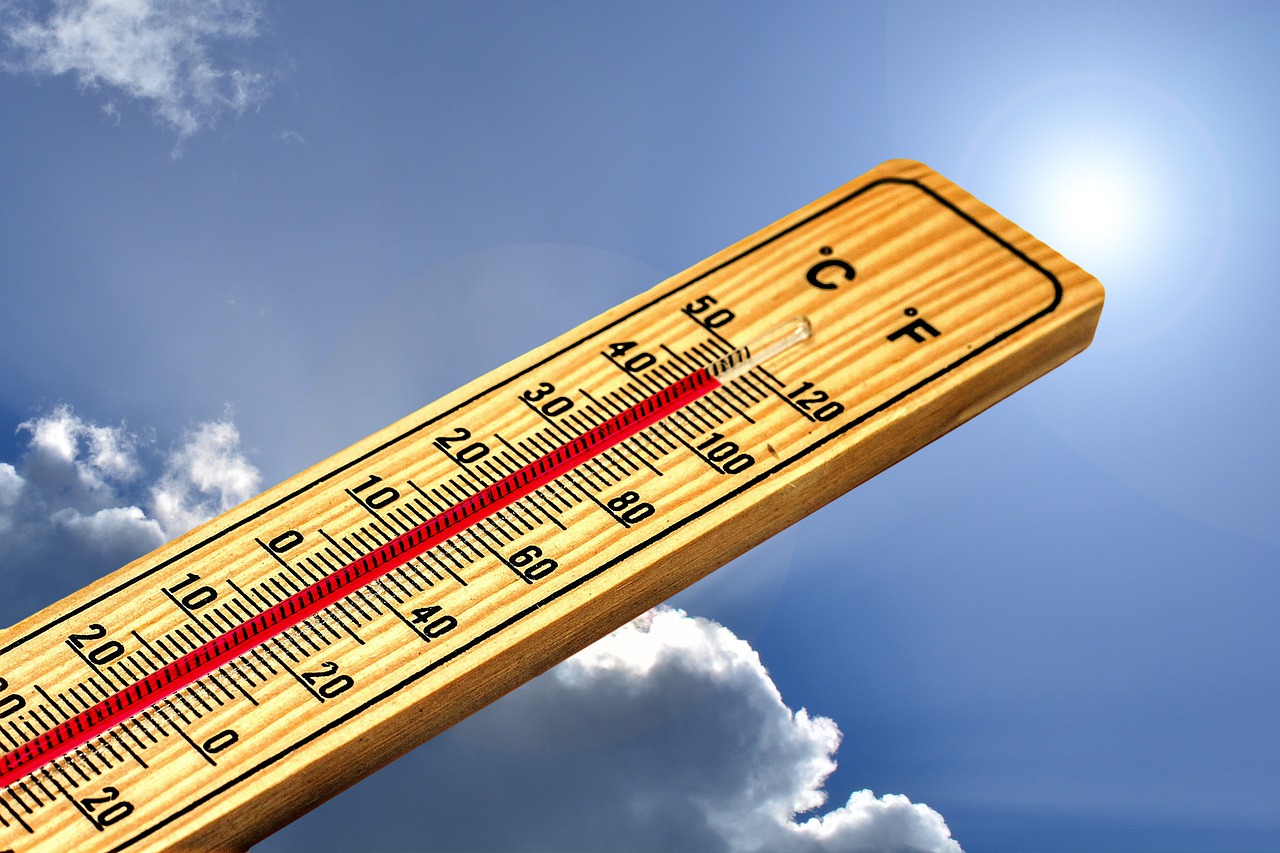This Summer may be a trial weather-wise. It is especially important for those of us 50 and better to monitor ourselves in the extreme heat. Be particularly careful if you are exercising outdoors or indoors without sufficient air conditioning. Adults over the age of 65 and young children also have a higher risk for heat exhaustion and other heat-related illnesses. This is because their bodies cannot cool down as easily as those of older children and younger adults.
When exposed to high temperatures, your body has several ways to lower your body temperature. Your body can cool itself by sweating. When sweat evaporates, it lowers your temperature. Your body can also lower the temperature by sending more blood to your skin and to your arms, legs, and head. This lets more heat escape.
Heat exhaustion is a common heat-related illness that occurs when the body cannot cool itself properly due to extreme heat or high humidity, both of which seem to be in the forecast.
If your body cannot get rid of the extra heat, your internal body temperature will rise. In high humidity, your body can’t use sweat to cool itself because the sweat does not evaporate into the already-moisture-filled air. This robs your body of one of the most important ways of getting rid of extra heat.
Without a way to cool down your internal body temperature increases. If left untreated properly, the condition may result in serious health issues and damage to important organs in the body. In heat exhaustion, your body temperature may rise to 101°F (38.3°C) to 104°F (40°C). This can make you feel weak and dizzy. Your heart may not be able to pump enough blood and you may collapse.
Heat exhaustion is less serious than heat stroke, another heat-related illness. But heat exhaustion can lead to heat stroke if it is not treated. In heat stroke, your body temperature rises even higher. This stops basic processes in your body. This can cause serious problems, including death.
Be aware of these typical signs of heat exhaustion so you can monitor your symptoms and yreat heat exhaustion before it becomes life-threatening heat stroke.
Heavy Sweating
When the temperature in the surroundings increases, it also leads to a rise in the internal temperature. Sweating is a natural mechanism of the body to cool itself and prevent heat shock. However, when the heat is too extreme or the humidity is too high, sweat cannot evaporate. This leads to excessive sweating that may make your clothing soaked or the whole body wet like doing heavy exercises. It is important to find a cool place or seek medical support immediately. Otherwise, the body temperature may rise to a dangerous level and cause serious damage to vital organs.
Nausea and Vomiting
Another common sign of heat exhaustion is nausea or vomiting. It is caused by dehydration when the body loses too much water from excessive sweating. People with heat exhaustion would feel sick to the stomach and throw up. This symptom makes it more difficult for these individuals to drink sufficient water to replenish the lost amount, which worsens the condition. Whenever you notice vomiting with other signs of heat exhaustion, such as severe fatigue, dizziness, or headache, make sure to get medical support as soon as possible.
Pale and Moist Skin
When heat exhaustion occurs and causes excessive sweating, the body may become dehydrated, and the blood pressure goes down. As a result, the blood vessels near the skin become constricted. Since the blood is responsible for carrying oxygen to other organs, narrower vessels may result in a lack of oxygen to the skin. That’s why people with heat exhaustion may have paler skin than usual. The skin would be cool to the touch as well and have some goose bumps when under the heat.
Muscle Cramps
Heat exhaustion causes dehydration, which means the body lacks a significant amount of fluids. The body requires a good water balance to function properly, so dehydration may affect the brain and trigger involuntary and sudden contraction of the muscle. In addition, muscle cramps would be caused by low electrolytes, especially calcium and magnesium, which are responsible for sending signals between the muscles and the brain. When the body sweats excessively, these minerals are also lost.
These are common ways of treating heat exhaustion:
- Let someone know about your condition
- If you are alone call 911
- Stop the activity and moving to a cooler area
- Raise your legs to a level above your head
- Take off any extra clothing and equipment
- Cool off until your temperature goes down. Until emergency medical personnel arrive, you should cool off until you shiver. This might involve soaking in cool water, spraying yourself with water, or sitting in front of a fan.
- Drink water or a sports drink if you can drink, are not confused, and are not nauseated. If you are being treated at a hospital, the staff may give you IV (intravenous) fluids.
- Have someone continue monitoring your heart rate, blood pressure, breathing rate, and mental status.
Many people will get better within an hour or two of treatment. If you do not get better quickly, go to the emergency room. There you will be checked for more serious problems.

